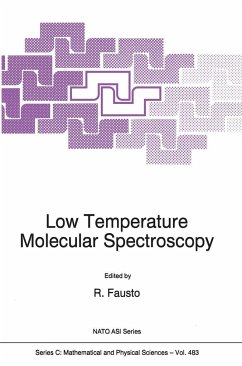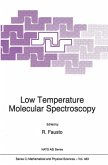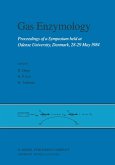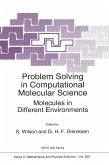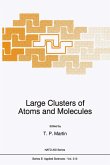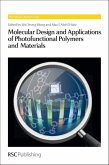Molecular spectroscopy has achieved rapid and significant progress in recent years, the low temperature techniques in particular having proved very useful for the study of reactive species, phase transitions, molecular clusters and crystals, superconductors and semiconductors, biochemical systems, astrophysical problems, etc. The widening range of applications has been accompanied by significant improvements in experimental methods, and low temperature molecular spectroscopy has been revealed as the best technique, in many cases, to establish the connection between experiment and theoretical calculations. This, in turn, has led to a rapidly increasing ability to predict molecular spectroscopic properties.
The combination of an advanced tutorial standpoint with an emphasis on recent advances and new perspectives in both experimental and theoretical molecular spectroscopy contained in this book offers the reader insight into a wide range of techniques, particular emphasis being given to supersonic jet and matrix isolation techniques, spectroscopy in cryogenic solutions (including liquid noble gases), and in both crystalline and amorphous states. Suitable quantum chemical methods are also considered, as are empirically based force field methods for calculating spectra of large molecular systems.
The wide range of topics covered includes: molecular dynamics and reactivity, time-resolved and high-resolution spectroscopy, conformational analysis, hydrogen bonding and solvent effects, structure and dynamics of weakly bound complexes, transition metal and organic photochemistry, spectroscopy of excited states, ab initio prediction of molecular spectra, and biochemical and astrophysical applications.
The combination of an advanced tutorial standpoint with an emphasis on recent advances and new perspectives in both experimental and theoretical molecular spectroscopy contained in this book offers the reader insight into a wide range of techniques, particular emphasis being given to supersonic jet and matrix isolation techniques, spectroscopy in cryogenic solutions (including liquid noble gases), and in both crystalline and amorphous states. Suitable quantum chemical methods are also considered, as are empirically based force field methods for calculating spectra of large molecular systems.
The wide range of topics covered includes: molecular dynamics and reactivity, time-resolved and high-resolution spectroscopy, conformational analysis, hydrogen bonding and solvent effects, structure and dynamics of weakly bound complexes, transition metal and organic photochemistry, spectroscopy of excited states, ab initio prediction of molecular spectra, and biochemical and astrophysical applications.

